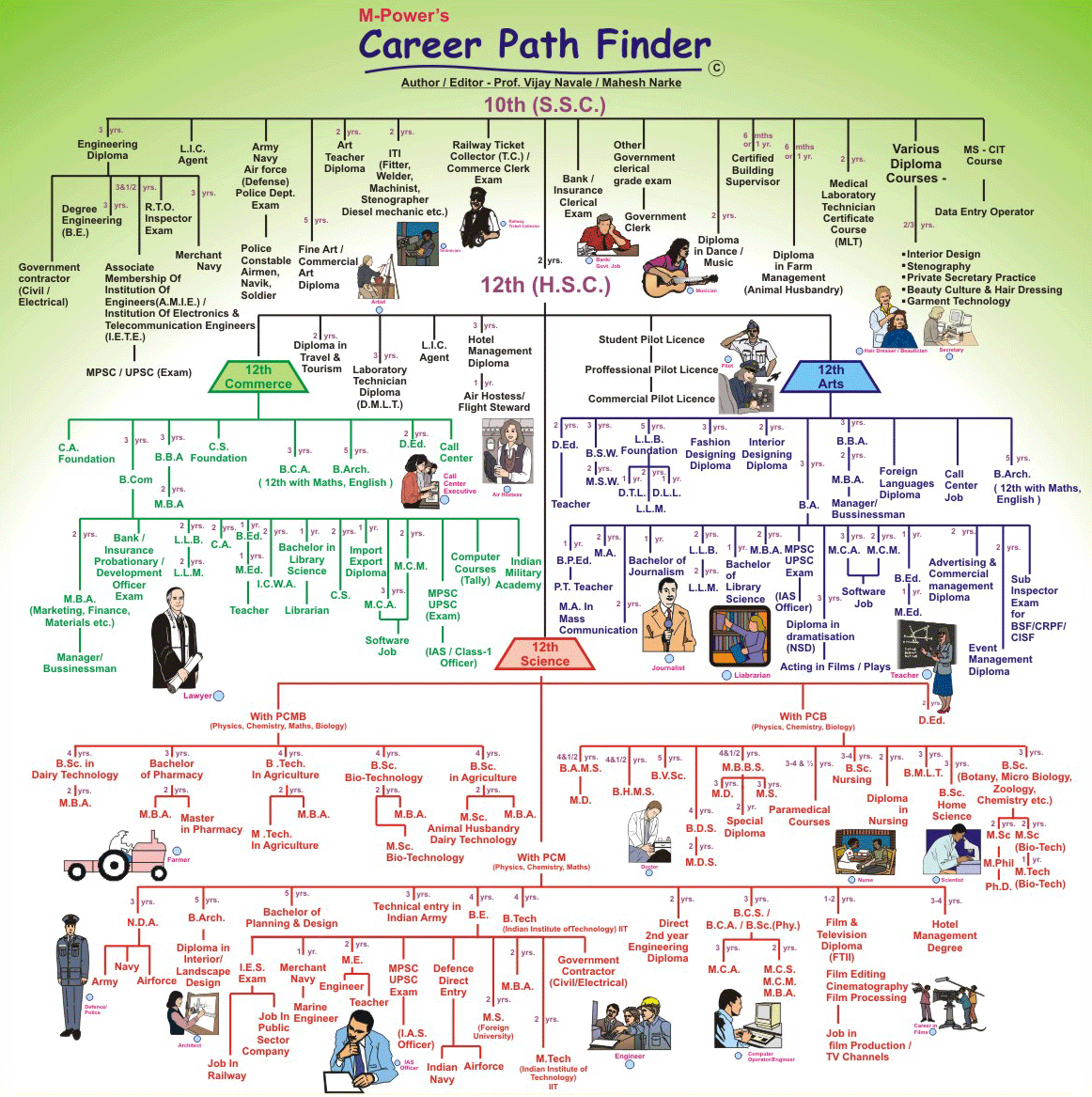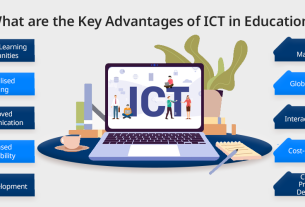Career Counselling
Career guidance and counselling after 12th is a crucial step for students to help them make informed decisions about their future. It is essential to evaluate personal interests, skills, strengths, and future opportunities when choosing a career path. Here’s a breakdown of what you should consider:
1. Self-Assessment
Before diving into specific career options, it’s essential to evaluate your strengths, weaknesses, interests, and aptitudes. Here are some questions to help guide this assessment:
- What subjects do I enjoy most?
- What are my hobbies and passions?
- Am I more inclined toward practical work or theoretical knowledge?
- Do I prefer working with people, data, or things?
Some tools and assessments available online can help in identifying strengths and preferences, such as aptitude tests, personality tests (like MBTI or Holland Codes), and interest inventories.
2. Choosing a Stream
Based on the subjects studied in 12th, students typically have the following broad categories of career options:
a. Science (PCM/BiPC)
- PCM (Physics, Chemistry, Maths):
- Engineering (Mechanical, Civil, Computer Science, Electrical, etc.)
- Architecture
- Data Science/AI/Robotics
- Cybersecurity
- Aviation (Pilot, Air Traffic Control)
- Pure Sciences (Physics, Chemistry, Biology research)
- BiPC (Biology, Physics, Chemistry):
- Medical Sciences (MBBS, BDS, Nursing, Physiotherapy, etc.)
- Paramedical Sciences (Radiology, Lab Technology, Optometry)
- Biotechnology, Genetics, Bioinformatics
- Pharmacy
- Veterinary Science
- Environmental Science
b. Commerce (with or without Maths)
- With Maths:
- Chartered Accountancy (CA)
- Company Secretary (CS)
- Actuarial Science
- Investment Banking
- Financial Analyst
- Business Management (BBA, MBA)
- Digital Marketing
- Without Maths:
- B.Com (General, Honours)
- Event Management
- Journalism/Media
- Travel & Tourism
- Fashion Designing
- Animation/Graphics Designing
- Social Work
- Retail Management
c. Arts/Humanities
- Traditional Arts:
- Literature (BA English, Journalism, Creative Writing)
- History, Political Science, Sociology, Psychology
- Law (5-year integrated LLB)
- Design and Creative Fields:
- Graphic Designing
- Animation/Illustration
- Fine Arts
- Fashion Design
- Interior Design
- Film-making and Cinematography
- Public Administration/International Relations:
- UPSC (Civil Services)
- NGO/Nonprofit Organizations
3. Exploring Career Interests
After narrowing down the stream or subjects, students should explore fields that align with their interests, whether they involve:
- Creative Arts: If you have a flair for creativity, design, music, dance, acting, etc., consider fields in Fine Arts, Animation, Media, etc.
- Management and Business: If you are business-oriented, courses like BBA, MBA, and entrepreneurship could be ideal.
- Technology: If you are fascinated by computers and tech, careers in software engineering, data science, AI, and cybersecurity could be the right fit.
- Medical and Healthcare: If you are inclined toward helping others and have an interest in biology, healthcare and medical fields could be perfect.
- Law and Advocacy: If you are passionate about justice and rights, law is a great option.
- Public Services and Governance: Civil services (UPSC) and other government exams could align if you are passionate about societal change.
4. Skills Development
Regardless of the field you choose, certain skills are valuable across all careers:
- Communication skills (both verbal and written)
- Time Management and organizational skills
- Critical thinking and problem-solving abilities
- Teamwork and leadership
- Technical proficiency (like coding or data analysis for technical careers)
Many industries now also value “soft skills” such as adaptability, resilience, and emotional intelligence. Participate in workshops, internships, volunteer work, and online courses to build these skills.
5. Exploring Education Options
- Bachelor’s Degree: Choose a relevant undergraduate program in line with your career aspirations (e.g., B.Tech for engineering, MBBS for medical, BBA for management).
- Professional Courses: Depending on the career, you may need to pursue specialized courses like CA, CS, or even certifications in areas like data science, digital marketing, and graphic design.
- Vocational Training: For those seeking quick employment or expertise in a practical skill, vocational programs like animation, hotel management, etc., are good options.
- Internships & Research: Practical experience is often invaluable. Try to take internships or work part-time to understand the industry better.
6. Counseling and Guidance
If you feel overwhelmed or uncertain, seeking professional career counseling can provide valuable insights. A counselor can:
- Help you explore career options based on your interests and aptitude.
- Guide you in making informed decisions and overcoming self-doubt.
- Provide insights into emerging careers and opportunities.
- Help with study strategies, time management, and stress management.
7. Future-Proof Careers
Consider emerging fields and industries with strong growth potential:
- Artificial Intelligence and Machine Learning
- Cybersecurity
- Green Jobs (Renewable energy, Sustainability)
- Blockchain and Cryptocurrency
- Data Science and Analytics
- Healthcare Innovations (Genomics, Biotech)
- Remote Work/Online Businesses
8. Financial Considerations
It’s important to evaluate the financial implications of your education and career path. Some careers (like medicine or engineering) may require significant investment in terms of time and money, while others (like digital marketing or design) might be more affordable but still offer lucrative opportunities.
9. Planning for Higher Studies
Many students pursue higher studies after their initial bachelor’s degree. A Master’s, MBA, or specialization can open up more advanced opportunities, so plan ahead for further education if necessary.
Conclusion
The key to successful career decision-making post-12th lies in identifying a combination of your interests, strengths, and market demand. Take time to explore all your options, and make sure you’re informed about the prospects and challenges of each field. It’s okay to change directions if you discover new passions or career opportunities as you move forward.




